Publications
Articles, publications, books, tools and multimedia features from the U.S. Institute of Peace provide the latest news, analysis, research findings, practitioner guides and reports, all related to the conflict zones and issues that are at the center of the Institute’s work to prevent and reduce violent conflict.
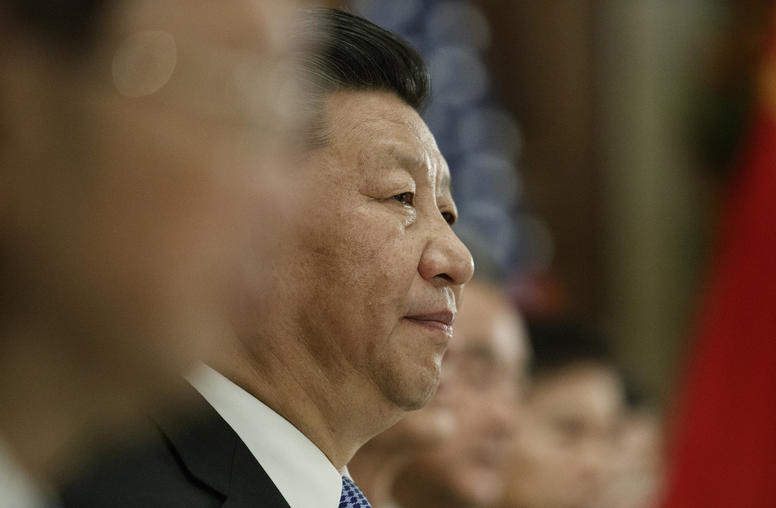
China’s Periphery Diplomacy: Implications for Peace and Security in Asia
China’s foreign policy is expanding in scope and depth and now reaches across the globe. Yet its diplomatic efforts focus on its own complex neighborhood. To advance these interests, China’s leaders practice an interlocking set of foreign affairs activities they refer to as “periphery diplomacy.” This report details the main tools Beijing uses to engage the countries with which it shares borders, assesses the campaign’s effectiveness, and lays out the implications for peace and security in Asia.
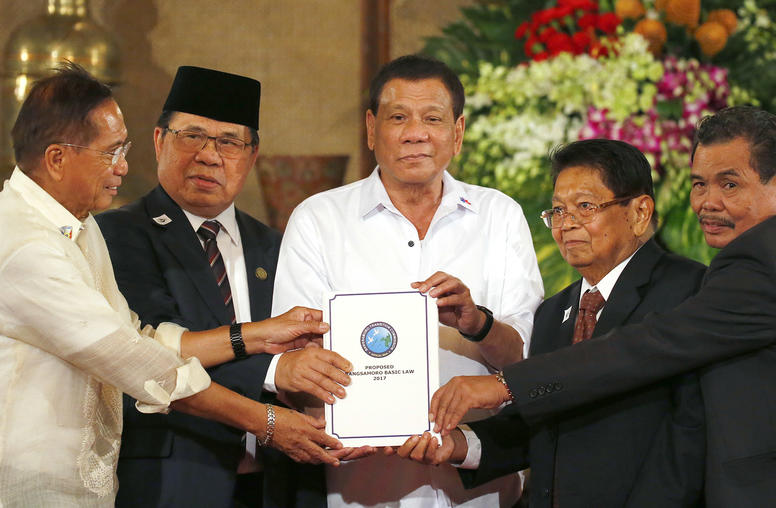
The Challenges Facing the Philippines’ Bangsamoro Autonomous Region at One Year
Just over a year ago, the Bangsamoro Autonomous Region of Muslim Mindanao (BARMM) was formally established as part of a peace agreement to end nearly five decades of conflict between the Philippine government and Moro secessionists. This report discusses the many notable achievements of the BARMM government during its first year while cautioning that these accomplishments are not irreversible, and that the BARMM will need international support—including from the United States—to confront future challenges.
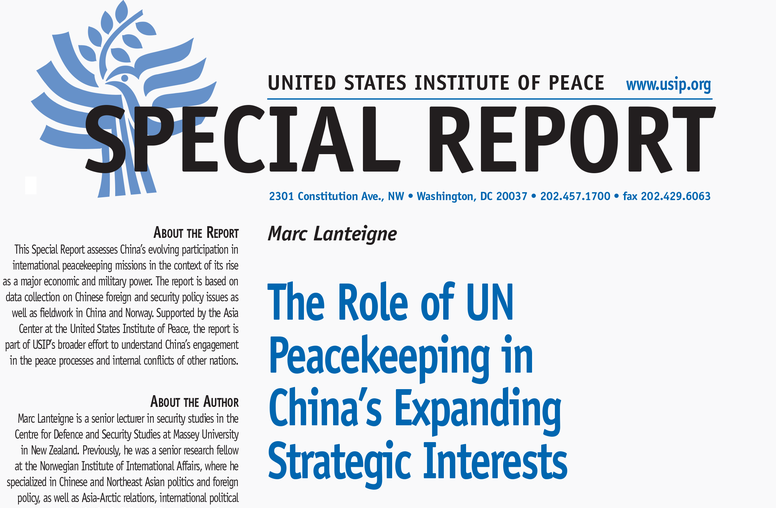
The Role of U.N. Peacekeeping in China’s Expanding Strategic Interests
Despite its growing status as a major economic and military power, China continues to be a strong supporter of UN peacekeeping operations. China is not only the second-largest financial contributor to UN peacekeeping (after the United States), it has roughly 2,500 personnel deployed in ongoing missions, including in active combat zones in Mali and South Sudan—far more than any other permanent member of the UN Security Council. This Special Report examines what China hopes to gain from its participation in UN peacekeeping, as well as the challenges it will face as its troops find themselves in more dangerous “peace enforcement” situations.
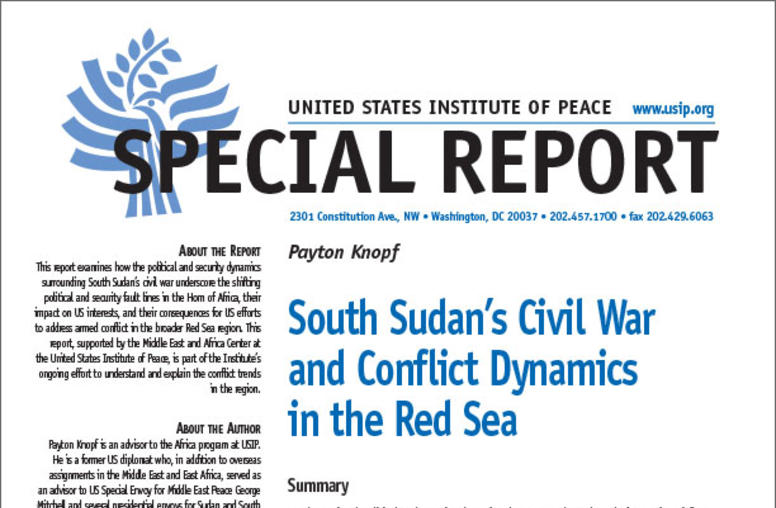
South Sudan’s Civil War and Conflict Dynamics in the Red Sea
The five-year-old civil war in South Sudan is an unparalleled humanitarian and security crisis, causing the largest exodus of refugees on the African continent since the Rwandan genocide and leaving over a third of the population displaced and two-thirds severely food insecure. Beyond the human toll on South Sudan’s long-suffering citizens, the country’s unraveling underscores the shifting political and security fault lines in the Horn of Africa. This Special Report surveys the region’s various interstate hostilities and intrastate conflicts and suggests ways the United States can reassert its influence to begin contributing meaningfully to the resolution of South Sudan’s civil war and conflicts in the greater Red Sea region.
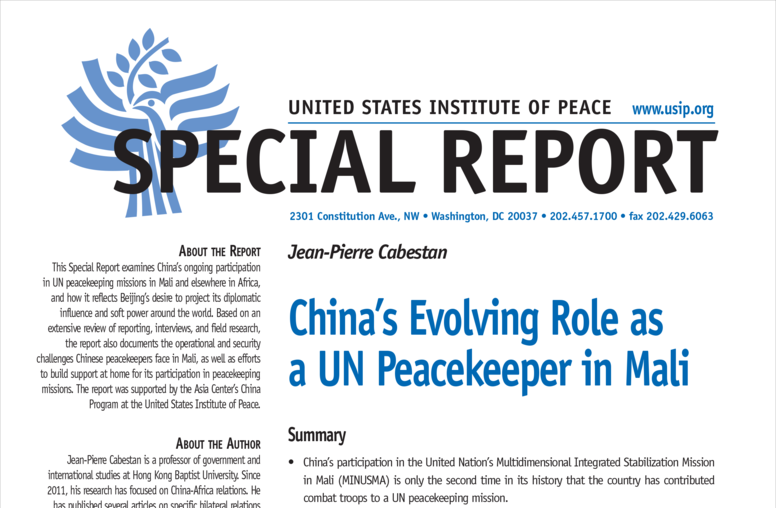
China’s Evolving Role as a U.N. Peacekeeper in Mali
Chinese troops have been stationed in Mali for the last half-decade as part of the UN-mandated stabilization force. Deployed after rebel groups overran large portions northeastern Mali in 2013, it was just the second time Beijing had ever contributed combat troops to a UN peacekeeping mission. This Special Report examines how China is using its peacekeeping activities in Mali as an opportunity to train troops and test equipment in a hostile environment—and as a way of extending its diplomatic reach and soft power in Africa and beyond.
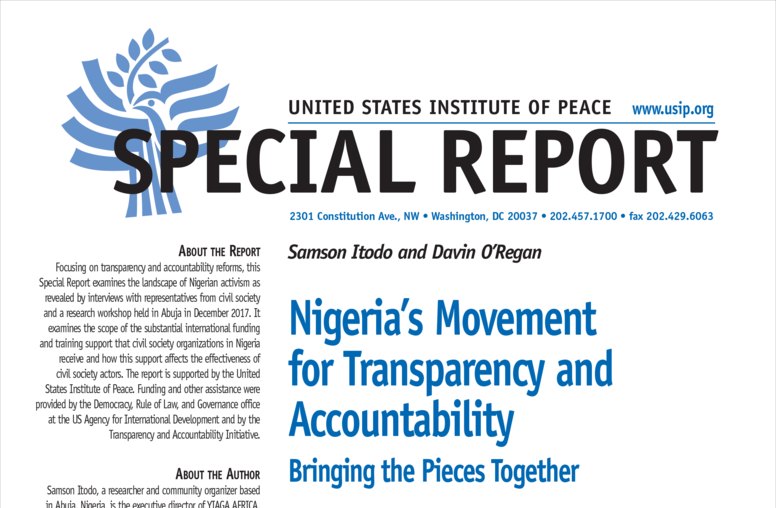
Nigeria’s Movement for Transparency and Accountability
Since the demise of its military dictatorship in the late 1990s, Nigeria has made remarkable democratic progress. Still, widespread corruption bedevils the country—which in many respects presents its biggest policy challenge and its biggest threat to stability and development. Drawing on a workshop held in Abuja as well as on...
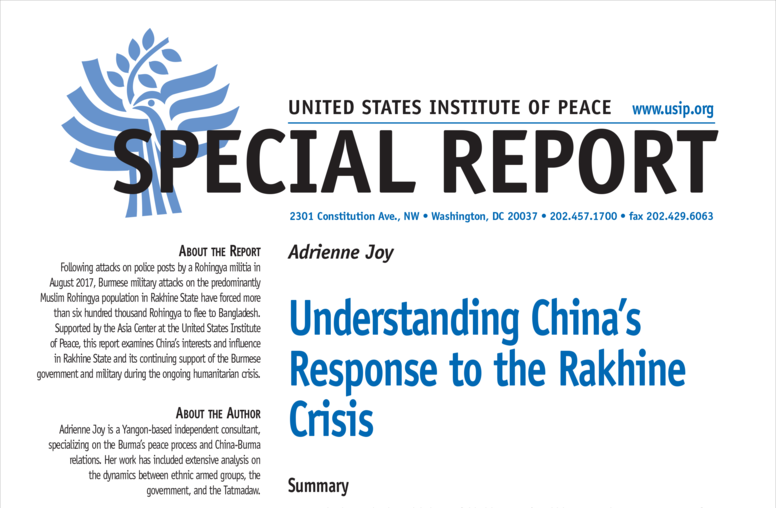
Understanding China’s Response to the Rakhine Crisis
Following attacks on police posts by an armed Rohingya militia in August 2017, reprisals by the Burmese government have precipitated a humanitarian crisis. More than six hundred thousand Rohingya have fled to Bangladesh, where they face an uncertain future. Publicly stating that the root cause of conflict in Rakhine is...
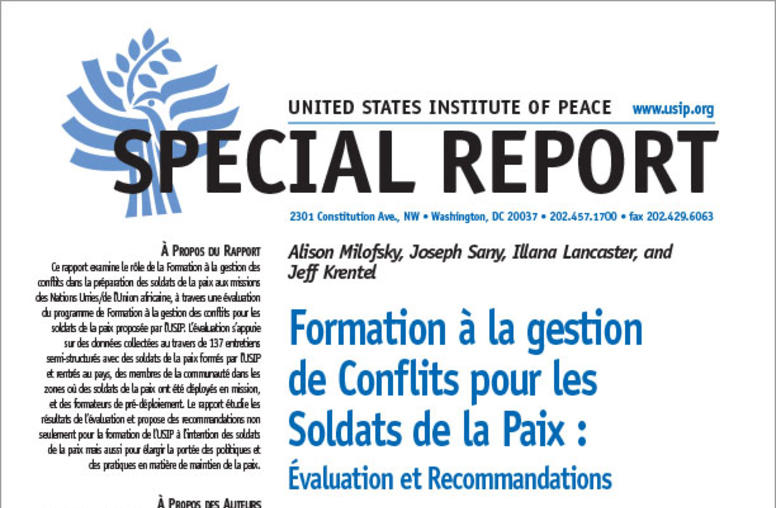
Conflict Management Training for Peacekeepers (French)
Ce rapport examine le rôle de la Formation à la gestion des conflits dans la préparation des soldats de la paix aux missions des Nations Unies/de l’Union africaine, à travers une évaluation du programme de Formation à la gestion des conflits pour les soldats de la paix proposée par l’USIP. L’évaluation s’appuie sur des données collectées au travers de 137 entretiens semi-structurés avec des soldats de la paix formés par l’USIP et rentrés au pays, des membres de la communauté dans les zones où des soldats de la paix ont été déployés en mission, et des formateurs de pré-déploiement. Le rapport étudie les résultats de l’évaluation et propose des recommandations non seulement pour la formation de l’USIP à l’intention des soldats de la paix mais aussi pour élargir la portée des politiques et des pratiques en matière de maintien de la paix.
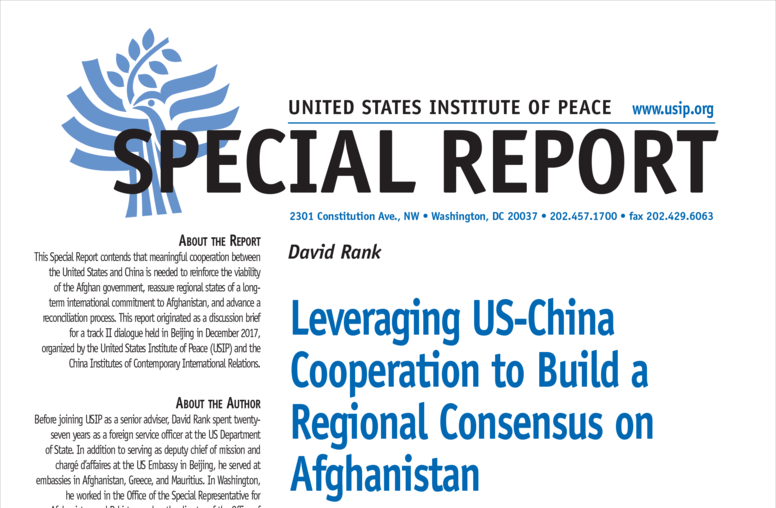
Leveraging U.S.-China Cooperation to Build a Regional Consensus on Afghanistan
The United States and China share an interest in seeing an end to the Afghan conflict that incorporates the Taliban into Afghanistan’s political system and prevents that country from becoming a safe haven for transnational terrorist groups. Yet U.S.-China cooperation on Afghanistan has been...
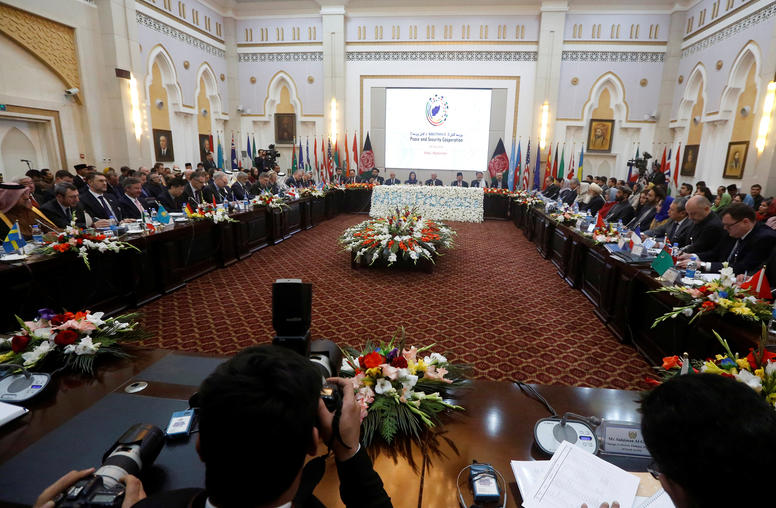
Intra-Afghan Peace Negotiations: How Might They Work
Recent positive developments in the Afghan peace process have renewed hopes that the country’s 17-year-old conflict could come to a close. Direct negotiations between the Afghan government and the Taliban, however, are likely to involve complex constitutional questions. This Special Report provides...